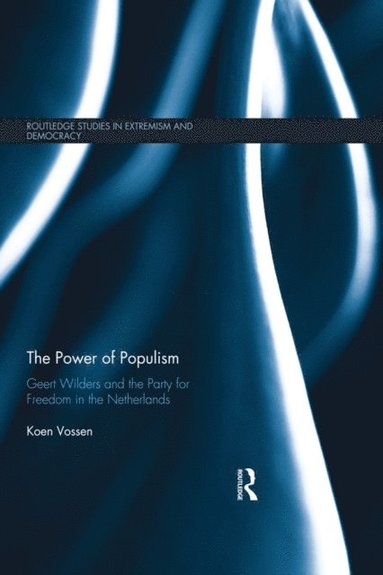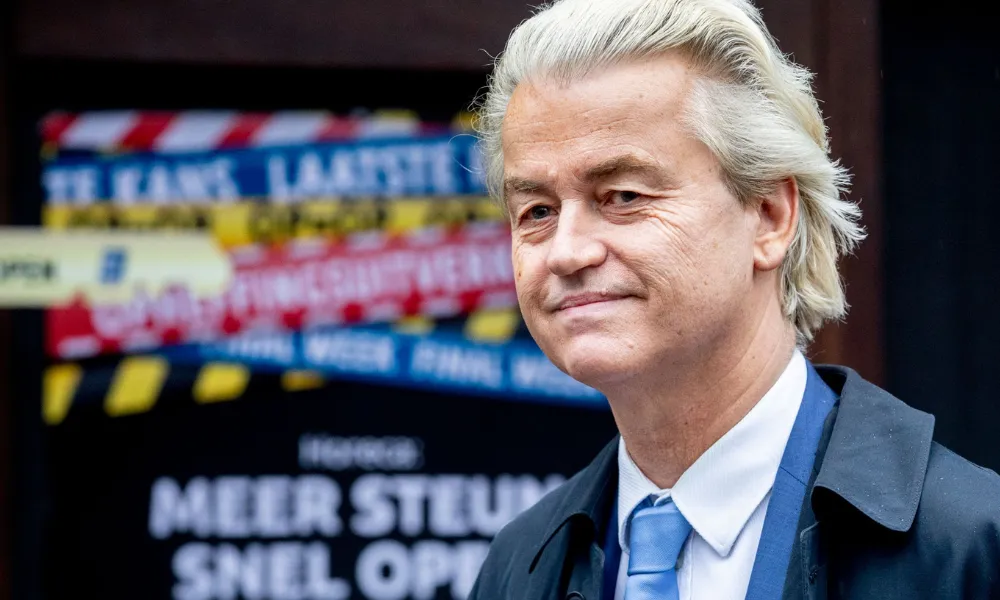By Massimiliano Sfregola
One man, Geert Wilders, leads a party, the Freedom Party (PVV), with no members, no structure, and no program. He governs a democracy directly through a social media account, hacking systems once rigidly structured by parties, intermediaries, and media gatekeepers.
The Netherlands will vote on Wednesday in a snap parliamentary election, the third in five years. Polls point to a possible win for Wilders’ PVV, which promotes an anti-immigration and nationalist agenda.
A mirror for Cyprus
There is wide discussion in Cyprus about whether this is the future of the political scene in the country. Many are asking whether Fidias Panayiotou’s digital democracy experiment, and others that may emerge, will succeed in breaking the system or not. While on the island this scenario still belongs to fiction, elsewhere in Northern Europe something like this has already happened, and it might happen again soon.
From the Beta Test to Version 2.0
Wilders, 62, a global celebrity of the early digital populist wave, is leading the polls ahead of Wednesday's Dutch election and aims to position his Partij voor de Vrijheid (PVV) first once again. Wilders’ pioneering model of seizing and managing power through social media is now widespread, and figures emerging from online platforms and walking straight into government are no longer a curiosity for political scientists.
If Wilders was the beta test, Fidias one generation later is, with all due differences, an evolved model, reflecting changes in social media use and the dominance of video formats. In this free market of politics, his startup has found an audience, cracked the institutions, gained a seat in the European Parliament, and is now scaling up into the forthcoming national party “Direct Democracy.”
Power without a party
In the Netherlands, it all started with Wilders’ early social media popularity. In 2023 he unexpectedly won the Dutch elections, ignoring the media and running without an electoral program.
“Wilders is the only member of his PVV party, and everything revolves around his 1.5 million followers on X/Twitter,” explains Koen Vossen, professor at Radboud University Nijmegen and an expert on populist parties.
Vossen, who in 2013 wrote The Power of Populism: Geert Wilders and the Party for Freedom in the Netherlands, has tried to pierce the wall of silence surrounding the populist leader. “The PVV is Wilders,” he says. “It has no members, no leaders, no offices.”
In this model of digital direct democracy, democracy itself begins to vanish. “The PVV is almost like a cult,” he adds. “Built around maybe 100 to 150 people in total, run in an improvised way.”

discusses the PVV, noting that Geert Wilders' party
is the only political party worldwide without members.
Brand built on conflict
Wilders’ brand identity broke into the political system by declaring war on Islam two decades ago, a stance that has cost him twenty years of 24-hour police protection. From election to election, his focus has shifted: from Eastern European migrants to Syrian refugees.
“What never changes are the slogans,” says Vossen. “Fight the corrupt party system, return power to the people, challenge manipulative media.”
Wilders has always waged war on the press. He does not give interviews, and none of his MPs are allowed to speak to journalists. This is remarkable in a country that ranks among the highest in the world for press freedom.
The black box of Democracy
This self-imposed information blackout has created another short-circuit in democracy: there is no transparency and little to no public accountability for a party supported by 2.4 million voters.
“To portray how things work inside the PVV, I had to interview expelled members or defectors,” Vossen explains.
While media-tycoon-driven direct democracy is not new, with figures such as Silvio Berlusconi or Donald Trump, the rise of total unknowns turned digital idols is a relatively recent phenomenon.
From obscurity to power
Wilders himself was once an obscure insurance employee, supplementing his income by ghostwriting speeches for VVD politicians, the Dutch liberal party of then–Prime Minister Mark Rutte.
A lucky break brought him into parliament in the late 1990s, and in 2006 he broke away to form his own movement. “For him, power is ‘my way or no way,’” says Vossen. “Over the years, anyone who challenged him was pushed out. Those who remain are often amateurs with no political vision. When elections approach, his inner circle activates supporters scattered across the country and personally selects candidates.”
Politics as performance
In a country with a strong tradition of formal, party-based recruitment for political office, Wilders has turned elections into something closer to a performance, catapulting random newcomers into parliament to fill lists and appointing friends as ministers.
The question now is urgent: will democracy 2.0 be built by influencer-politicians spanning the entire political spectrum, offering slogans for every taste and winning power through algorithms and polarisation alone?
